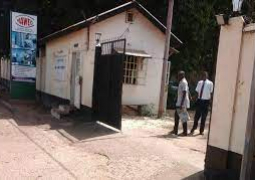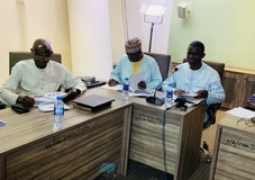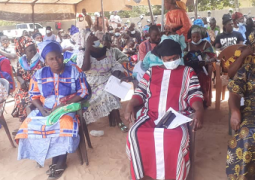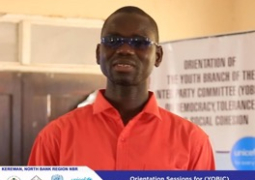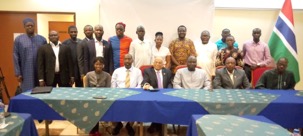
These are visionary plans for achieving low-carbon, climate-resilient societies out to 2050.
In February 2022, a Memorandum of Understanding (MoU) was signed between the American International University West Africa (AIUWA), the Ministry of Environment, Climate Change and Natural Resources (MECCNAR), Ministry of Finance and Economic Affairs, and the International Institute for Environment and Development (IIED), and 2050 Pathways Platform.
AIUWA was appointed as the Legacy Partner in the long-term implementation of the LTS, primarily running point in capacity building activities.
The Climate Change Secretariat in conjunction with AIUWA and with the support of the LTS National Coordinator and Pakau Consultancy, on Friday 27th May 2022 validated the academic programmes designed for environment studies and climate change, as part of capacity building activities during the implementation of the LTS.
The two-day forum was to develop three sets of curricula on full BSc degree in climate change and environmental science, a module for first year students to take on climate change and environmental science, and a short-term course for civil servants, members of the private sector, and Community-Based Organizations to come to grips with climate change.
Ebrima Jawara, deputy permanent secretary Finance and Administration for MECCNAR, who also doubles as the LTS National Coordinator, expressed optimism that the fit-for-purpose curricula would complement capacity-building programmes already being run by the University of The Gambia and other distinguished institutions, ensuring that the implementation of the LTS becomes a reality.
DPS Jawara added that the output of the workshop would be a key component in the implementation activities of The Gambia`s LTS to 2050.
“This workshop has provided an opportunity for researchers, policymakers, and others concerned with the serious business of climate change, to share ideas and insights on how to create holistic fit-for-purpose curricula in the field of climate change and environmental science,” he stated, saying graduates from the programmes will be the next generation of frontliners, tasked with dealing with the emerging menace of climate change, particularly during the implementation of The Gambia`s LTS.”
Momodou Wuri Jallow, adviser to the Minister of Environment, Climate Change and Natural Resources, outlined the need to have climate change taught at university level, saying this is because climate change has become a household name in development.
Prof Dr. Makie Taal, Vice Chancellor of American International University West Africa said it is important to build in-country capacity on climate change, noting that The Gambia is fortunate to have a ministry dedicated to issues of climate change.
Dinesh Shukla, Chancellor of American International University West Africa, said climate change affects everybody in the world, but most especially the poor.
He described climate change as a fact, saying to address climate change, people need to be educated as well as make sure government follows up the protocols of the Paris Agreement.
“Climate change will affect not only people’s health but countries as well. If we do not plan, climate change will affect everybody globally.”
Chancellor Shukla equally commended the government of The Gambia for taking progressive steps in strengthening the capacity and operations of the Ministry of Environment, Climate Change and Natural Resources.


